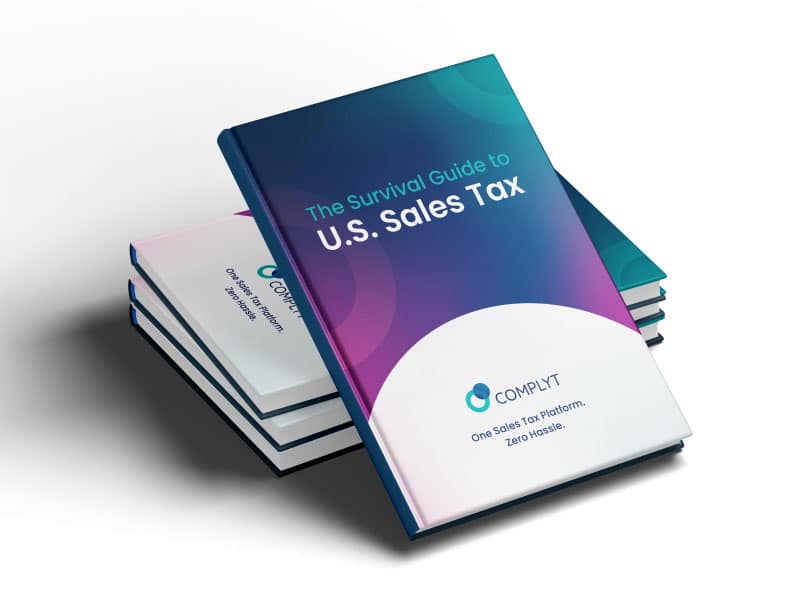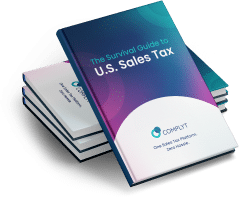What is the sales tax rate in Georgia?
The Georgia state sales tax rate is currently 4%. However, the total tax rate can increase when local optional taxes are added. Depending on the locality, the total sales tax rate in Georgia can be as high as 8.9%.
Sales Tax Georgia: When should your business collect Sales Tax in Georgia?
In Georgia, a business is obligated to collect sales tax if it has a sales tax nexus. What is a nexus, you ask. It may sound like something straight out of a science fiction movie, but a nexus is simply a significant connection with the state that can be either physical or economic.
Georgia Physical Sales Tax Nexus
A business has a physical sales tax nexus in Georgia if it has a physical presence in the state. It sounds simple enough, right? But in the digital world, physical connections can be created in many ways.
Examples of Physical Nexus in Georgia
A business creates a physical sales tax nexus in Georgia if it:
- Has an office, distribution, sales, or sample room location, warehouse, storage place, or other place of business.
- Has a representative, agent, salesperson, canvasser, remote employee, or solicitor operating in the state on either a temporary or permanent basis.
- Has property, including inventory stored in a warehouse, in the state.
- Has a third-party affiliation agreement with a company in the state.
- Relies on delivery services from the state to deliver their goods.
When you look at these parameters, you have to agree that there’s nothing straightforward about physical presence anymore. And maybe there is something a little science fictional about nexus after all.
Georgia Economic Nexus: Revenue, Thresholds and Transactions
Following the South Dakota v. Wayfair case, Georgia implemented laws for an economic nexus, which came into effect in 2019.
Because of these economic nexus laws, businesses have a sales tax nexus in Georgia if their total gross revenue exceeds $100,000 or if the company conducts more than 200 separate sales within the state in the current or previous calendar year.
If a business meets the economic nexus threshold, it should register for a sales tax permit within 30 days after crossing the threshold.
Which services are taxable in Georgia?
In Georgia, sales tax is levied mainly on tangible goods. However, some services are also taxable. Taxable services in Georgia include:
- Certain repair services
- Rental of hotel/motel rooms and lodgings
- Certain personal property rentals
- Certain telecommunications services
Georgia Sales Tax on Products: How to Calculate What Your Business Should be Charging
Sales tax in Georgia should be calculated by applying the combined state and local sales tax rate to the total sales price. The sales tax rate used should correspond to the location where the goods are being delivered.
So while a $100 sale may only incur a sales tax of $4 in some jurisdictions, it may result in a total selling price of $108.90 in jurisdictions where the local rate of 4.9% has to be added to the state rate of 4%.
Georgia clothing tax: How much is the sales tax rate on clothing sales?
The sale of clothing is subject to the state rate of 4% as well as local sales tax, which can bring the total sales tax chargeable up to a whopping 9%.
It’s important to remember that delivery charges are also taxable in Georgia and that delivery fees, even when stated separately, need to be taxed as well.
Georgia Online Sales Tax: Are SaaS and Digital Services Taxable?
Online sales and SaaS products bring up numerous questions regarding taxability. In Georgia, the general rule is that only tangible goods are taxable, while most services, including SaaS and digital services, are not.
However, businesses should always remain vigilant for any changes in tax law especially with digital and Saas products, as tax laws are continuously adapting to address the evolution of the digital business landscape.
SaaS Sales Tax Georgia: Are software subscriptions taxable?
In general, businesses providing SaaS products or digital services in Georgia are not required to charge Georgia SaaS sales tax. However, as tax laws can change, it’s always best to consult a tax professional to ensure compliance.
How can a business get a sales tax permit in Georgia?
A business can apply for a sales tax permit in Georgia by registering online with the Georgia Tax Center. The application is free, and upon approval, the sales tax number is sent via email.
Collecting Sales Tax in Georgia as a Business
Georgia Tax Return Due Dates Explained
In Georgia, sales tax returns are due on the 20th of the month following the reporting period. However, if the due date falls on a weekend or holiday, the deadline is extended to the next business day. But it would be a best practice to visit the Georgia department of revenue website to get specific dates.
What is the required frequency for sales tax returns in Georgia?
The frequency for filing sales tax returns in Georgia can be monthly, quarterly, or annually and is determined by the volume of sales tax collected by the business.

